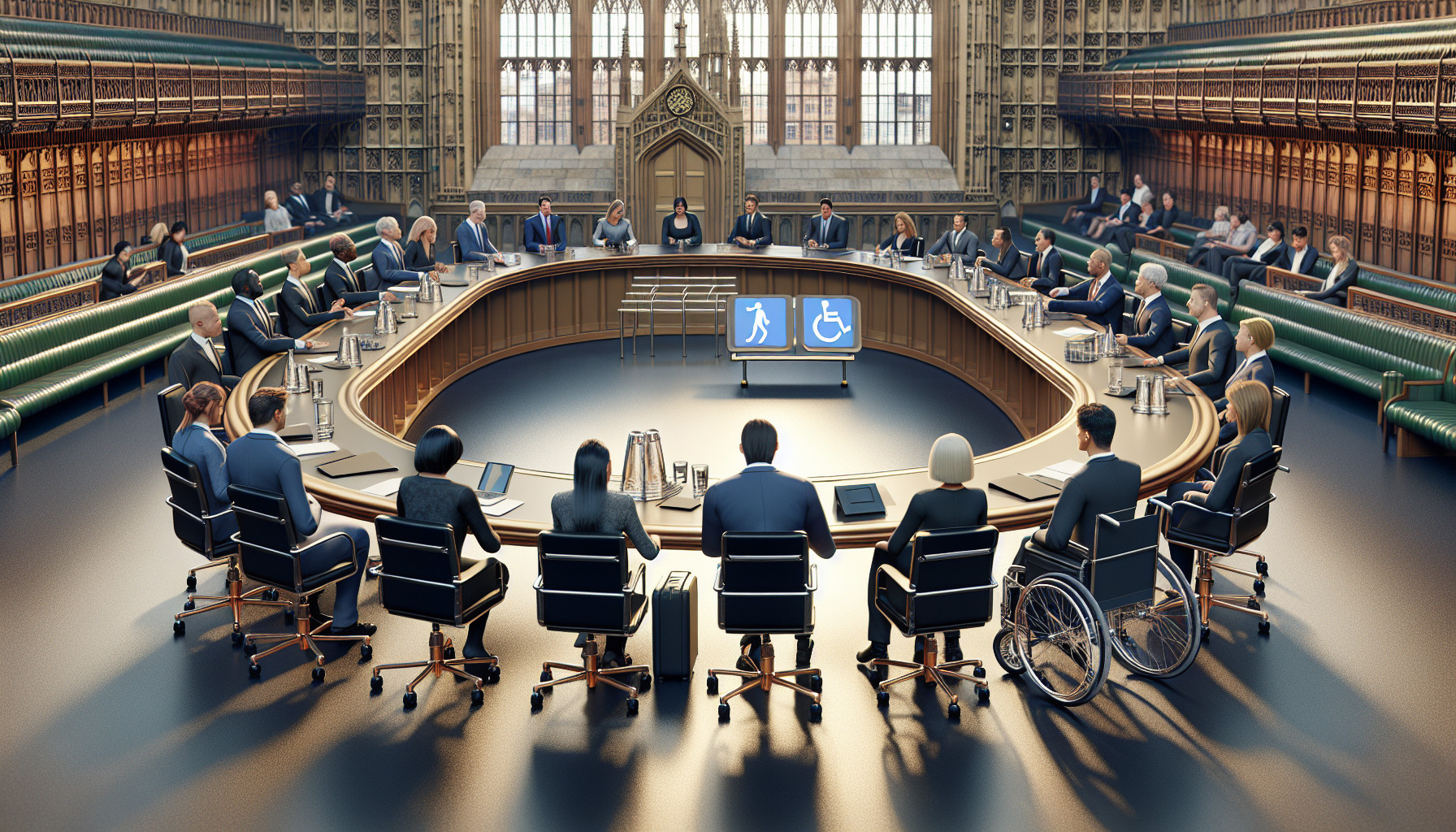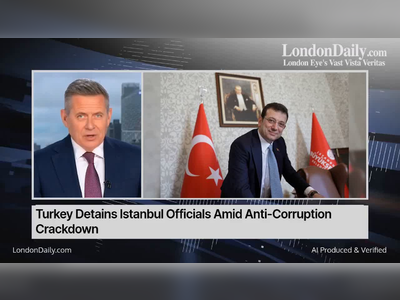
Disabled MPs Discuss Challenges in UK Parliament Accessibility
Parliamentary leaders address accessibility concerns raised by MPs with disabilities during committee hearing.
Members of Parliament (MPs) with disabilities have voiced significant concerns regarding the accessibility challenges they face while working within the UK Parliament.
During a recent meeting of the Commons modernisation committee, MPs criticized existing provisions as inadequate and described the procedures of parliamentary participation as outdated and time-consuming.
Lucy Powell, the Leader of the House of Commons and chair of the modernisation committee, expressed her support for implementing call lists for MPs who are scheduled to speak in debates.
Although such lists are already in use during ministerial questions, they have not been consistently applied to other debates, except during certain periods of the COVID-19 pandemic.
Marie Tidball, a Labour MP elected in 2024, shared her experience of receiving an accessible office and support from staff and party whips.
However, she highlighted difficulties associated with the current method of speaking during debates, stating this significantly impacted her maiden speech.
Tidball noted a four-hour wait to deliver her speech left her feeling exhausted and unable to manage basic needs like bathroom breaks or food, which diminished her ability to participate fully.
Sarah Bool, a newly elected Conservative MP diagnosed with type 1 diabetes, described how her fluctuating blood sugar levels exacerbated the difficulties of waiting five hours to speak in a recent debate.
The requirement for MPs to indicate their desire to speak by 'bobbing'—standing up briefly after each speech—added to her physical strain.
Robert Halfon, a former Conservative MP who has mild cerebral palsy, recounted using a four-wheeled Segway to navigate the parliamentary estate, particularly during the voting process.
He criticized the existing voting system, especially noting the number of times he had to travel to the voting lobby during Brexit debates, calling the system “insane.”
Labour MP Marsha de Cordova, who is registered blind and has nystagmus, pointed out specific challenges she faces in navigating the parliamentary estate.
She raised issues such as inadequate lighting, the presence of glass doors, and a lack of clear signage on staircases.
De Cordova explained that she requires assistance to enter the building due to the difficulty posed by revolving doors.
Initially advised on how to 'catch the speaker’s eye' to participate in debates, de Cordova emphasized the impracticality of this suggestion for someone with her visual impairments.
Steve Darling, a Liberal Democrat MP who is also registered blind and accompanied by a guide dog, noted the overall helpfulness of Commons staff but raised concerns about accessibility standards for parliamentary staff members.
Tidball, actively collaborating with colleagues with disabilities, advocated for the implementation of call lists as a step towards creating a more inclusive parliamentary environment.
She underscored a pressing message to the committee: disabled members are eager to engage in parliamentary discourse, but the current expectation of prolonged waiting times is exclusionary and not reflective of an accessible institution.
During a recent meeting of the Commons modernisation committee, MPs criticized existing provisions as inadequate and described the procedures of parliamentary participation as outdated and time-consuming.
Lucy Powell, the Leader of the House of Commons and chair of the modernisation committee, expressed her support for implementing call lists for MPs who are scheduled to speak in debates.
Although such lists are already in use during ministerial questions, they have not been consistently applied to other debates, except during certain periods of the COVID-19 pandemic.
Marie Tidball, a Labour MP elected in 2024, shared her experience of receiving an accessible office and support from staff and party whips.
However, she highlighted difficulties associated with the current method of speaking during debates, stating this significantly impacted her maiden speech.
Tidball noted a four-hour wait to deliver her speech left her feeling exhausted and unable to manage basic needs like bathroom breaks or food, which diminished her ability to participate fully.
Sarah Bool, a newly elected Conservative MP diagnosed with type 1 diabetes, described how her fluctuating blood sugar levels exacerbated the difficulties of waiting five hours to speak in a recent debate.
The requirement for MPs to indicate their desire to speak by 'bobbing'—standing up briefly after each speech—added to her physical strain.
Robert Halfon, a former Conservative MP who has mild cerebral palsy, recounted using a four-wheeled Segway to navigate the parliamentary estate, particularly during the voting process.
He criticized the existing voting system, especially noting the number of times he had to travel to the voting lobby during Brexit debates, calling the system “insane.”
Labour MP Marsha de Cordova, who is registered blind and has nystagmus, pointed out specific challenges she faces in navigating the parliamentary estate.
She raised issues such as inadequate lighting, the presence of glass doors, and a lack of clear signage on staircases.
De Cordova explained that she requires assistance to enter the building due to the difficulty posed by revolving doors.
Initially advised on how to 'catch the speaker’s eye' to participate in debates, de Cordova emphasized the impracticality of this suggestion for someone with her visual impairments.
Steve Darling, a Liberal Democrat MP who is also registered blind and accompanied by a guide dog, noted the overall helpfulness of Commons staff but raised concerns about accessibility standards for parliamentary staff members.
Tidball, actively collaborating with colleagues with disabilities, advocated for the implementation of call lists as a step towards creating a more inclusive parliamentary environment.
She underscored a pressing message to the committee: disabled members are eager to engage in parliamentary discourse, but the current expectation of prolonged waiting times is exclusionary and not reflective of an accessible institution.











